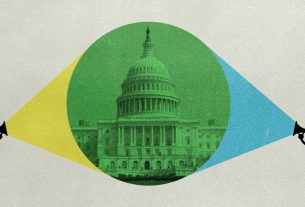Phone app location data brokers are a growing menace to our privacy and safety. All you did was click a box while downloading an app. Now the app tracks your every move and sends it to a broker, which then sells your location data to the highest bidder, from advertisers to police.
So it is welcome news that the Federal Trade Commission has brought a successful enforcement action against X-Mode Social (and its successor Outlogic).
The FTC’s complaint illustrates the dangers created by this industry. The company collects our location data through software development kits (SDKs) incorporated into third-party apps, through the company’s own apps, and through buying data from other brokers. The complaint alleged that the company then sells this raw location data, which can easily be correlated to specific individuals. The company’s customers include marketers and government contractors.
The FTC’s proposed order contains a strong set of rules to protect the public from this company.
General rules for all location data:
- X-Mode cannot collect, use, maintain, or disclose a person’s location data absent their opt-in consent. This includes location data the company collected in the past.
- The order defines “location data” as any data that may reveal the precise location of a person or their mobile device, including from GPS, cell towers, WiFi, and Bluetooth.
- X-Mode must adopt policies and technical measures to prevent recipients of its data from using it to locate a political demonstration, an LGBTQ+ institution, or a person’s home.
- X-Mode must, on request of a person, delete their location data, and inform them of every entity that received their location data.
Heightened rules for sensitive location data:
- X-Mode cannot sell, disclose, or use any “sensitive” location data.
- The order defines “sensitive” locations to include medical facilities (such as family planning centers), religious institutions, union offices, schools, shelters for domestic violence survivors, and immigrant services.
- To implement this rule, the company must develop a comprehensive list of sensitive locations.
- However, X-Mode can use sensitive location data if it has a direct relationship with a person related to that data, the person provides opt-in consent, and the company uses the data to provide a service the person directly requested.
As the FTC Chair and Commissioners explain in a statement accompanying this order’s announcement:
The explosion of business models that monetize people’s personal information has resulted in routine trafficking and marketing of Americans’ location data. As the FTC has stated, openly selling a person’s location data the highest bidder can expose people to harassment, stigma, discrimination, or even physical violence. And, as a federal court recently recognized, an invasion of privacy alone can constitute “substantial injury” in violation of the law, even if that privacy invasion does not lead to further or secondary harm.
X-Mode has disputed the implications of the FTC’s statements regarding the settlement, and asserted that the FTC did not find an instance of data misuse.
The FTC Act bans “unfair or deceptive acts or practices in or affecting commerce.” Under the Act, a practice is “unfair” if: (1) the practice “is likely to cause substantial injury to consumers”; (2) the practice “is not reasonably avoidable by consumers themselves”; and (3) the injury is “not outweighed by countervailing benefits to consumers or to competition.” The FTC has laid out a powerful case that X-Mode’s brokering of location data is unfair and thus unlawful.
The FTC’s enforcement action against X-Mode sends a strong signal that other location data brokers should take a hard look at their own business model or risk similar legal consequences.
The FTC has recently taken many other welcome actions to protect data privacy from corporate surveillance. In 2023, the agency limited Rite Aid’s use of face recognition, and fined Amazon’s Ring for failing to secure its customers’ data. In 2022, the agency brought an unfair business practices claim against another location data broker, Kochava, and began exploring issuance of new rules against commercial data surveillance.


